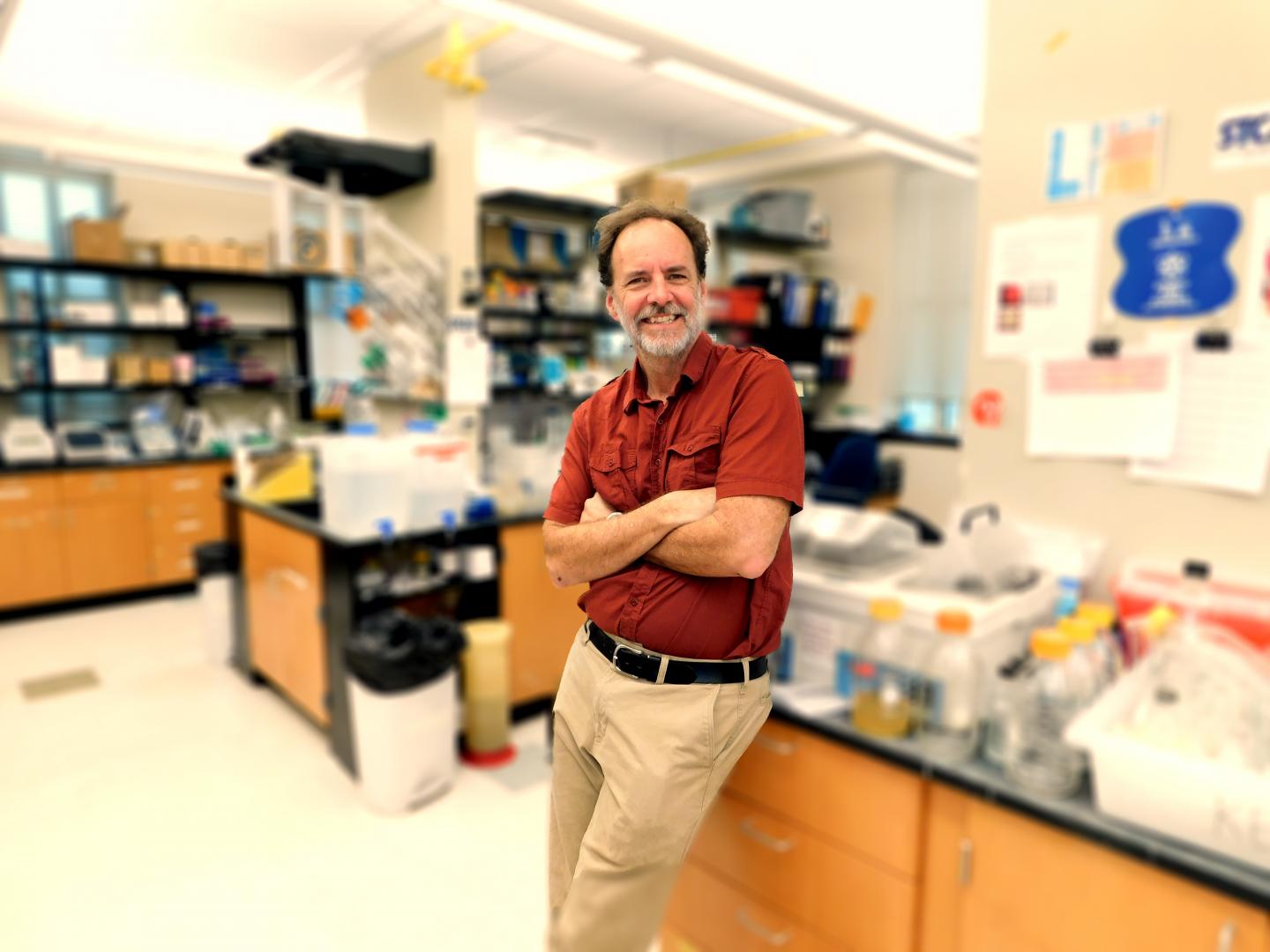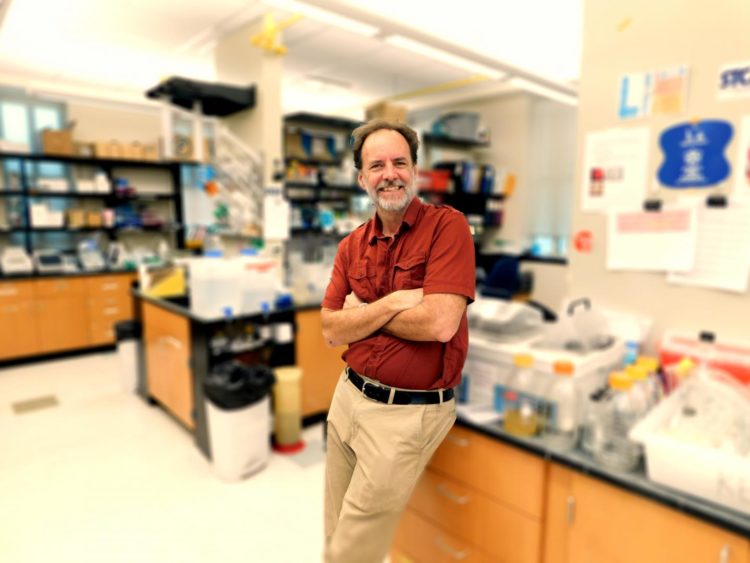Vaccine would be the first to protect against tularemia in the United States

Credit: The University of Texas at San Antonio
FEBRUARY 10, 2020 — Southwest Research Institute, The University of Texas at San Antonio and Lovelace Respiratory Research Institute have received an $18 million contract from the U.S. Department of Defense’s Defense Threat Reduction Agency to collaboratively develop a protective vaccine against Francisella tularensis, the bacterium that causes tularemia. The researchers’ goal is to develop a vaccine formulation that protects humans for up to one year.
Francisella tularensis is generally found in infected animals, such as rabbits, which is why the disease is also known as rabbit fever. While human infections are infrequent, those that do occur are difficult to diagnose because they are rarely seen and recognized by clinicians.
Aerosolized Francisella, however, is highly infectious and is classified by the U.S. Centers for Disease Control as a Category A biothreat agent. When introduced into the lungs, 10 to 50 Francisella tularensis organisms have the potential to cause a tularemia infection that can be fatal. As a result, the bacterium has previously been developed as an aerosolized bioweapon and is considered a threat to national security.
“Infectious diseases are a very real threat to the security and well-being of our nation and the world,” said UTSA President Taylor Eighmy. “The vaccine development project underway to protect our military against tularemia infections is another example of how UTSA’s knowledge enterprise is collaborating with partners of the highest caliber to improve human health in San Antonio and globally.”
No tularemia vaccine is currently available to protect the U.S. population. A previous vaccine developed in the former Soviet Union is not approved for use in the U.S. due to questions about its safety and stability.
“There is an urgent need to develop a tularemia vaccine that is safe, effective and supported by sufficient data to be approved by the FDA,” said Joe McDonough, SwRI’s director of pharmaceuticals and bioengineering. “By combining SwRI’s medical countermeasure development and formulation development experience with Dr. Klose’s and UTSA’s innovation, we will provide a much-needed solution to a critical problem.”
The research that led to the SwRI-UTSA-Lovelace collaboration began at UTSA. Karl Klose, now the Robert J. Kleberg Jr. and Helen C. Kleberg College of Sciences Professor, began researching Francisella tularensis in 2001 to better understand how these bacteria cause disease.
Klose, who also studies Vibrio cholerae, the bacterium that causes cholera, is the director of the South Texas Center for Emerging Infectious Diseases, where nearly two dozen UTSA researchers are studying infectious diseases such as chlamydia, valley fever, Lyme disease, malaria to develop new diagnostics, therapeutics and vaccines to reduce the threat that infectious organisms pose to humans.
As Klose and his research team began to better understand Francisella tularensis, they turned their attention to developing a safe and effective vaccine candidate to protect against tularemia infection. They ultimately decided to develop the vaccine from Francisella novicida, a closely related bacterium that is benign for humans.
In the laboratory, Klose and his colleagues created Fn-iglD, a genetically modified Francisella novicida strain lacking a gene required for Francisella to cause disease. With funding from the National Institutes of Health and the Department of Defense, the UTSA researchers demonstrated that the Fn-iglD vaccine has the ability to protect against airborne Francisella exposure in animal models.
“The tularemia work underway at the UTSA South Texas Center for Emerging Infectious Diseases reflects our aggressive approach to tackling complex health issues and reinforcing our trajectory toward Carnegie R1 designation and recognition as a National Research University Fund institution,” said Bernard Arulanandam, UTSA Vice President for Research, Economic Development, and Knowledge Enterprise.
The SwRI-UTSA-Lovelace contract funded by the DoD will allow the researchers to advance those efforts and prepare the vaccine for human clinical trials. Work will include improving vaccine stability through encapsulation with nanoparticles and enhancing the duration of immunity by optimizing a slow release formulation.
A leading applied science institution, SwRI is serving as the Principal Investigator for the DoD contract. The non-profit research and development organization has a rich history in advancing and supporting commercialization of drug and formulation technology to improve patient health care. Its scientists offer vast expertise in micro- and nanoencapsulation technologies that solve complex drug delivery problems and accelerate drug discovery and development. SwRI has also developed and licensed multiple technologies to fight infectious disease, reduce pain and treat addiction, mitochondrial poisoning and cancer.
Learn more about the South Texas Center for Emerging Infectious Diseases and the research programs underway at UTSA in microbiology and immunology.
Learn more about SwRI’s pharmaceutical testing laboratories.
Once SwRI and UTSA optimize the vaccine, Lovelace Respiratory Research Institute, a not-for-profit research organization specializing in the research and development of respiratory disease treatments, will conduct advanced testing using more complex scientific models to ensure the efficacy and safety of the vaccine.
“Oftentimes in science, you discover something interesting but never see your discovery get to the point that it impacts society,” said Klose. “This is something we discovered in our laboratory, right here in San Antonio, that is now moving one step closer to having a practical outcome of protecting humans against a biothreat. It is really exciting and we couldn’t do it without SwRI and Lovelace, who specialize in formulations, encapsulation and testing. Our close collaboration is enabling all of this to move forward.”
The $18 million tularemia contract is a significant accomplishment for the Vaccine Development Center of San Antonio. Founded in 2012 by UTSA, SwRI, Texas Biomedical Research Institute and UT Health San Antonio, the center leverages the strength, expertise and assets of San Antonio’s four leading research institutions to identify and develop promising vaccine candidates to promote public health.
“This program exemplifies the progress that happens when institutions are brought together through partnerships like the Vaccine Development Center of San Antonio,” said Dr. McDonough.
Media Contact
Christi Fish
[email protected]
210-458-5141
Original Source
https:/





